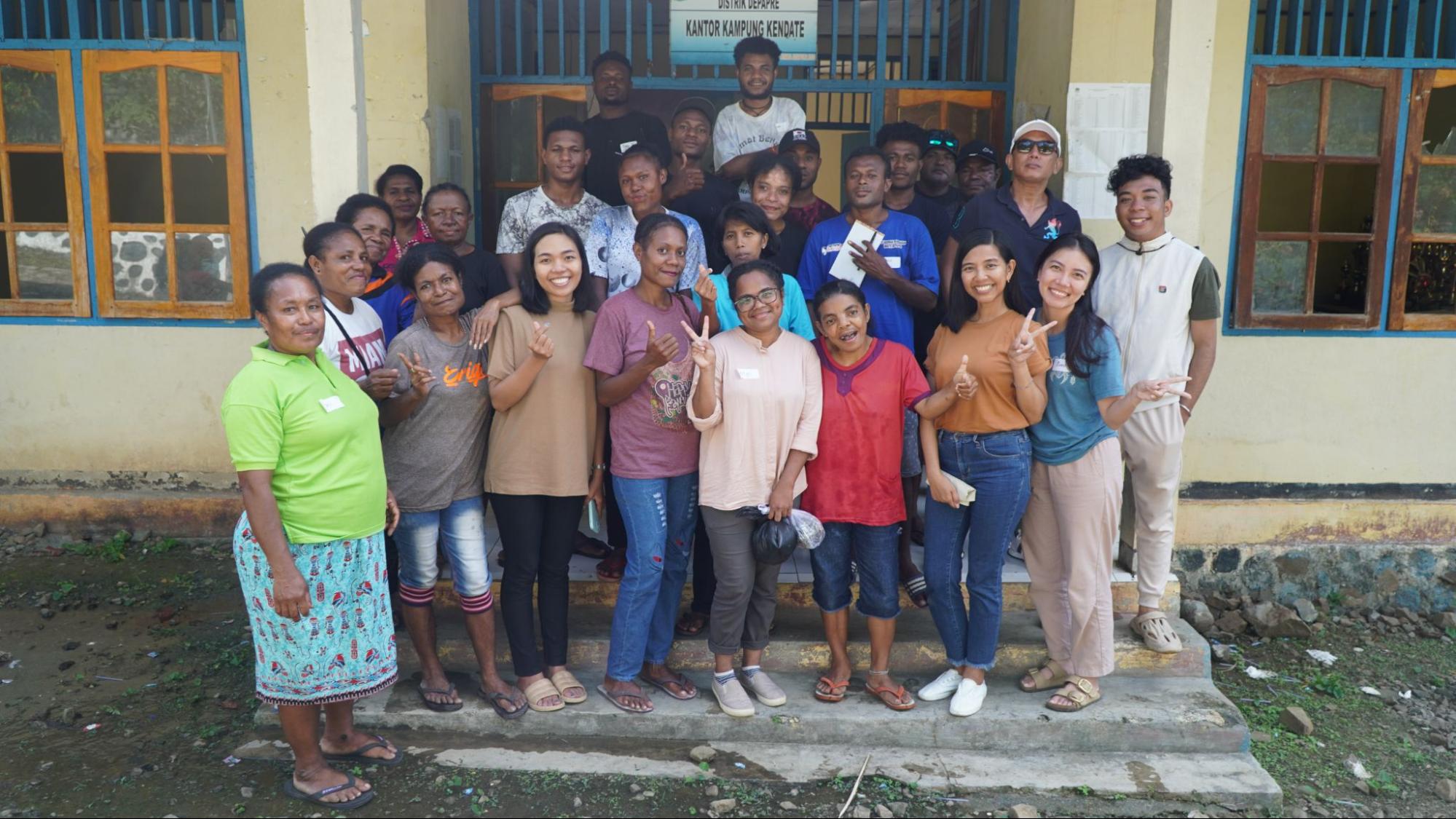Fishing goes far beyond the act of casting a net. In Kendate, women play pivotal roles in supporting their household and fishing community. Some of them not only venture out to sea alongside their spouses but also actively engage in selling their catch at traditional markets. Moreover, during seasons of abundance, they adeptly process unsold fish, transforming them into smoked or dried delicacies, contributing to their respective household’s sustenance and income.
As part of an initiative to uplift the livelihoods of smallholder cacao farmers and fishers in Papua, funded by the Ministry of Foreign Affairs (MOFA) Japan, Kopernik organizes a series of training not only for the farmers and fishers, but also for women and youth in the community. Through this effort, Kopernik hopes to bring together and empower all the elements in the fisher communities to thrive together to improve their local economy.
The local women in Kendate had previously joined comprehensive training sessions in product development, equipping them with the skills to create a wide range of fish derived products, including fish balls, crackers, fish nuggets, and more. Prior to this training, beyond fresh catch, their other products were limited to dried or smoked fish, which they processed using rudimentary techniques.The market is also very limited to the district level. The diversification into fish derivative products marked a significant departure from their usual produce.
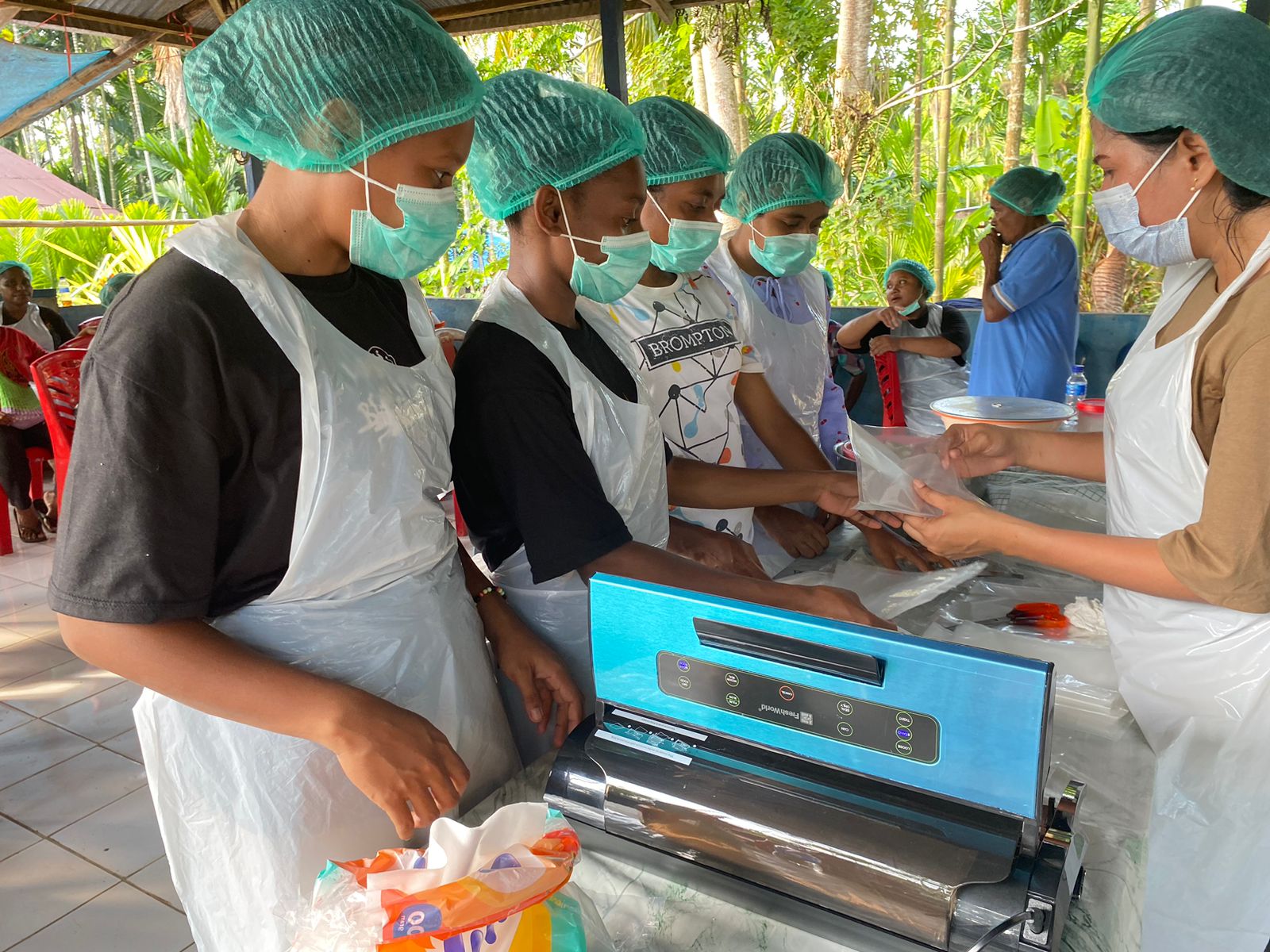
Product development training to create fish derivative products
In addition to the product development training, Kopernik organized Packaging & Branding training, expanding the scope to include not only women but also the village youth. This expansion was driven by the incorporation of modules on branding and online marketing, teaching participants how to utilize online platforms to create branding for their products. This change required the involvement of young people to support the dedicated women in this endeavor. Hopefully this youth involvement could foster entrepreneurial skills while nurturing a stronger sense of community.
Among the women who participated in the training, Mama Ribka stands out as a remarkable figure in the Kendate community. Initially, she worked with her husband to fish and sell their catch, and occasionally planted crops. Because of her passion for advancing women’s empowerment, she was selected to be the Head of Kendate Village Women’s Association. In addition, she is also appointed as the Head of the Indigenous Women’s Alliance for Kendate village (Perempuan AMAN Nusantara). She has since been an active participant in various women-empowerment activities organized by local organizations and government.
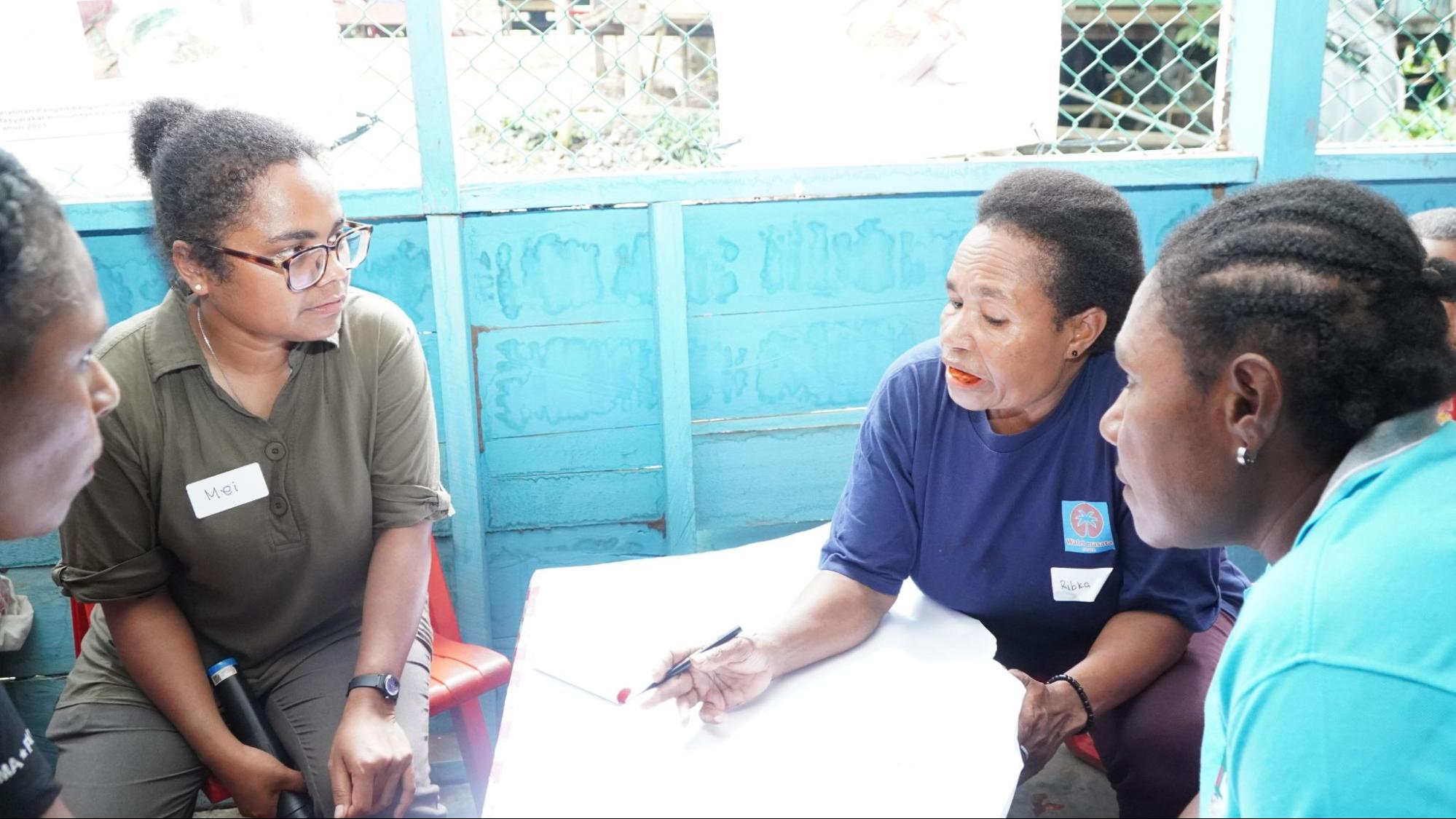
Mama Ribka (second from right) serves as an inspiring figure in her community
Mama Ribka highlights one of the biggest challenges she faces in shifting the local women’s mindset. The key lies in persuading them that the knowledge gained in these training sessions holds long-term benefits for both themselves and their families, that could open different doors of opportunities for them. Furthermore, maintaining consistent participation, not just during but also after the training, is crucial, as putting their newfound skills into practice is vital. The knowledge they have gained should be put into practice and shared with other women in the village. She believes that regular practice helps them fine-tune their skills and enhance the quality of their products.
While Mama Ribka emphasizes the importance of a mindset shift, Mama Eta, who relocated to Kendate after marriage, brings a fresh perspective. Mama Eta envisions significant potential for her community to diversify their products and reach broader markets. Her extensive background in sales, predating her move to Kendate, became evident during the product pitching exercise as she confidently crafted compelling pitches. Mama Eta is eager to assist her fellow women in Kendate in learning to pitch confidently.
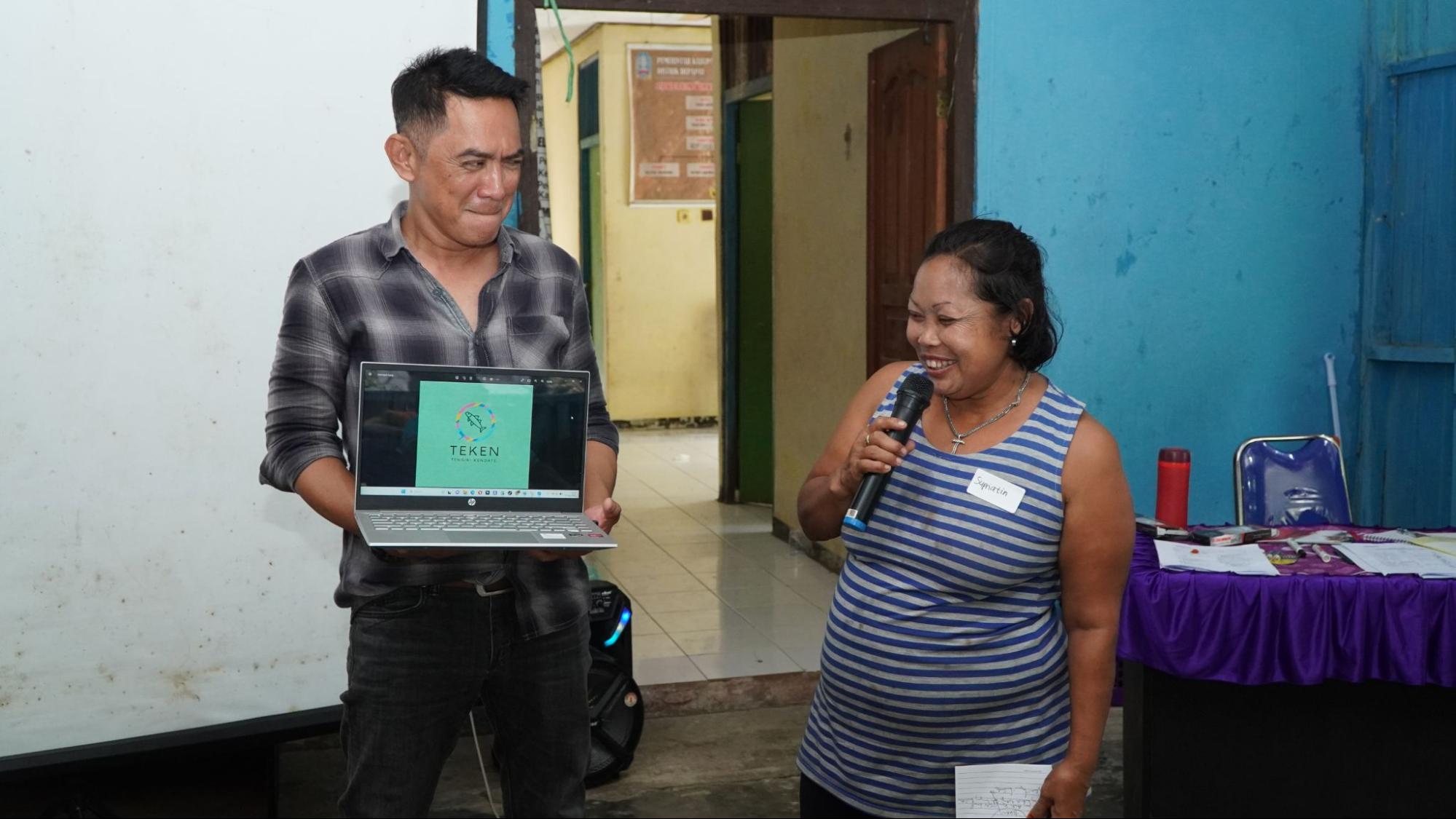
Mama Eta effortlessly infusing humor into her unique product pitch
It is truly heartwarming to witness the ripple effect of empowerment that has grown from these training programs. Many local women who joined the initiative now eagerly encourage their children to follow suit. They understand that these skills can truly benefit the younger generation, opening doors to a better future.
Take Bernardus, for instance, a 19 year-old who participated in the branding training. He had been unemployed for a year after high-school, facing financial constraints that prevented him from attending college. However, his unwavering enthusiasm to explore online graphic design platforms and learn about social media marketing, showcases the transformative power of knowledge. It has given him hope and a strong desire to contribute to his community by enhancing the village's product branding.
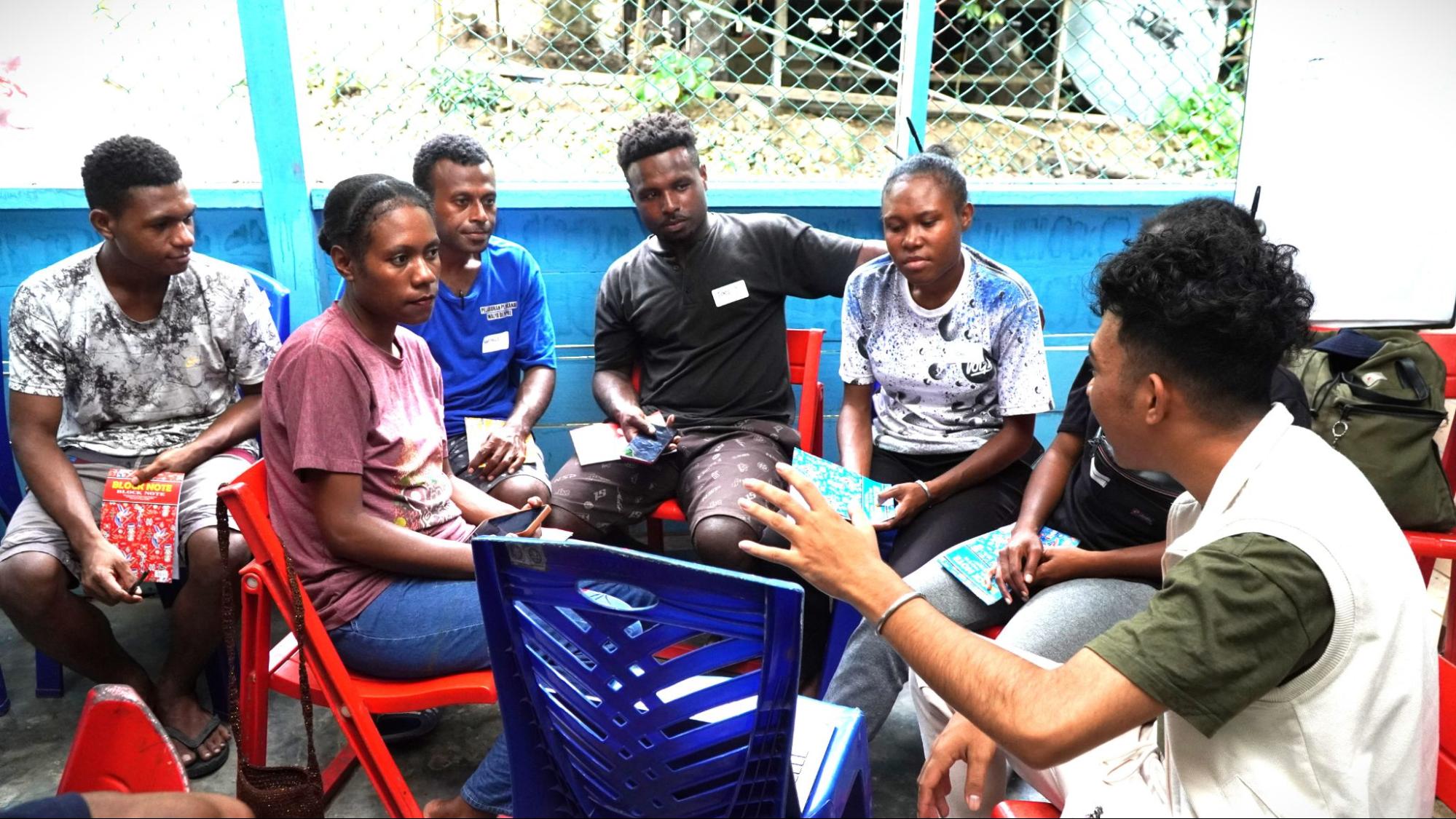
Bernardus (far left) carefully listening to explanation about online graphic design platform
And the enthusiasm does not stop with Bernardus. Many other young participants of the training share the same excitement, with some expressing their hopes for future opportunities. This training could be the path to job opportunities or entrepreneurial ventures for those still seeking their place in the workforce. The shared enthusiasm and potential for growth highlight the enduring impact of these programs, nurturing a cycle of learning and inspiration that spans generations.
This project is made possible through support from the Ministry of Foreign Affairs (MOFA) Japan.
